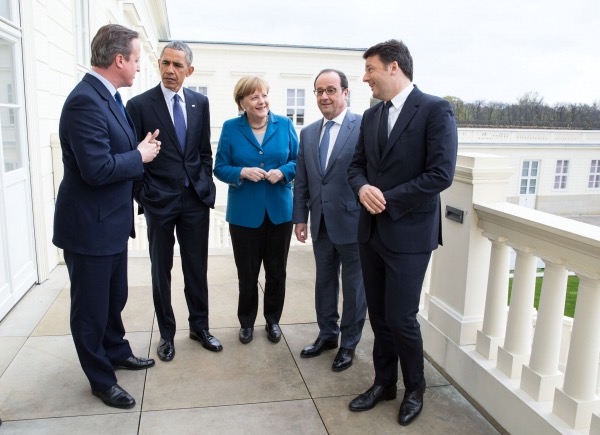French television culture: has it outgrown the exception culturelle?
Ask any Francophile what they love most about French culture and they might say the food or the films. Perhaps they’ll mention French philosophy or Parisian fashion. One thing that you probably won’t find on their list of passions is French television culture. This might be all about to change.
A look back over the landscape of French television culture reveals that despite being pioneers of early cinema, the French were late starters to the small screen. The first broadcasts of national events only appeared in 1948, eleven years after the UK’s BBC aired the coronation of George IV. More recently, France’s television network only made the switch to digital in 2005.
French television culture: the exception culturelle française and US encroachment
Unlike it’s cinematic tradition, French television culture is not renowned for its quality. Stereotypical characters, less than challenging plot-lines and low production values have meant French audiences typically look to American shows for fresh, relevant and gripping series.
Despite the popularity of US shows, French television has still maintained a 40% slice of broadcasting in France due to a national particularity called the exception culturelle française.
The exception began in the infamous Uruguay round of trade talks in the early nineties. It excludes French television culture – audiovisual products including television, film and music – from free trade agreements. This means that the French state can enforce quotas of French and European television, thus limiting US dominance. Despite huge opposition. France even managed to secure this exception in the recently rejected EU-US Transatlantic Trade and Investment Partnership (TTIP).

The most favourable interpretation of the French government’s intentions is that the policy is designed to protect the emerging creative industry, allowing culturally important French programming a platform. However, with the exception of a few high points like ‘Bref’ – an inventive series of short monologue style shows – by the 1990s and early 2000s France had yet to produce the promised dearth of cultural gems. Instead, the exception seemed to slow progress and reduce quality of broadcasting.
The current state of French television
Anyone who has flicked through French TV might have noticed how long many of the programmes are. It’s not uncommon for shows to be 90 minutes each, with frequent repeats. The quotas demand more French produced shows, but if the industry can’t keep up then there is a scrabble to fill up space.
The need for more French content also allows lesser quality shows to get more airtime than they merit. Marc Fumandi, a member of the prestigious Academie Française writes in his book ‘L’Etat Culturel’:
one of the failings of our exception culturelle is that it protects our mediocre products just as well as it does our best ones.
Authors Donald Morrison and Antoine Compagnon argue in their controversial book ‘The Death of French Culture’ that government involvement in television also encourages what they call ‘cultural bureaucrats’. These are Paris-centric circles of media elites connected to government power who hold a monopoly over broadcasting.
The issue, as professor of Economics at Sciences Po Patrick Messerlin points out, is that funding new television relies on a growth of new actors and directors. This resource takes time to expand, whereas subsidies need to be spent quickly. The lion’s share of subsidies and quotas benefits therefore go to big production companies and top actors, while up and coming talent only pick up the scraps.
A changing tide for French television culture?
This insular picture is at odds with the current global popularity of French television. Cut to 2016 and television represents a €67.5 million export industry for France. French shows like ‘Spiral’, ‘Spin’, ‘Braquo’ and ‘Mafiosa’ along with French-UK collaborated ‘The Tunnel’ have all become popular TV fixtures in Europe and the US. French television culture has even embraced Netflix, with Marseille – starring Gerard Depardieu – becoming the first French-produced show on the streaming service.
What happened to produce this change? It’s possible that the exception culturelle has finally started working for French television culture. However, another explanation seems more likely, and it owes more to global influence than national protectionism. The rise of quality dramas within French television culture is evidence that France has caught on to the US–UK lead trend of treating series like mini movies, with the accompanying budget and structure.
Alex Berger, a co-producer on The Bureau – another hit French export – explained the inspiration to Variety:
We were influenced by stuff coming from the states such as The Wire, The Sopranos, The West Wing and House of Cards. We imported a new production technique into France for the series, based on a showrunner structure and a writing room.
The new wave distinguish themselves from previous French shows with their slick production, big budgets and gritty themes. As the production model reached France, it played to national strengths and allowed producers to think about TV in cinematic terms. Bringing in top film directors put an end to the idea that television is just for entertainment that should shy away from difficult topics.
The exception culturelle Française: time to let go?
So is it time to say goodbye to the exception? French television shows have proven they can compete on equal terms with the best US programmes. The success of an American production model in France shows that creative industries, in particular French television culture, should be looking outwards for inspiration rather than sheltering under the protection of the state.
In any case, despite France’s attempts to the contrary, a democratic government simply can’t control what people watch. If audiences are unimpressed by what they find on TV, they’ll go online to find something better. Leaving the exception behind would mean that when the global trend in television changes to something new, French television culture won’t be left in the dark.
What are your thoughts on the exception culturelle Française? Share your opinions on French television culture in the comments below.
Image Credits:
1. ‘Gerard Depardieu in Marseille’,Television Streaming via Flickr
2. ‘Cameron, Obama, Merkel, Hollande, Renzi in 2016’, The White House -WhiteHouse.gov via Wikimedia
3. ‘Affiche Braquo 3’ , Geoffroy Thiebaut via Flickr








